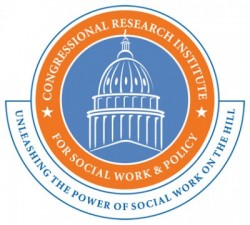Whenever tragedy strikes, social workers are among the first responders helping people cope with their grief and loss and empowering people to put their lives back in order. Social workers provided support troops at the Boston Marathon bombing, they assisted children and families during the shootings at Sandy Hook Elementary School in Newtown, Connecticut, and they were ever present during the aftermath of Hurricane Katrina. A motto of National Association of Social Workers (NASW) is Help Starts Here. I imagine there are social workers on the ground in the city of Ferguson. If not in a healing role, I would bet there are social workers among the protesters. The Missouri chapter of NASW is in Jefferson City, little more than a 2 hour drive away.
 Watching the unrest in the city of Ferguson one has to wonder if anything could have been done to prevent the confrontation between the black community and predominantly white police department. Some believe all of this could have been avoided if Michael Brown had just followed the police officer’s orders. That may have prevented this incident but it would not solve the problems in Ferguson. Some in Congress see the problem as a too heavily armed police department. Disarming the police does not solve the problems either. The city was a powder keg waiting to explode.
Watching the unrest in the city of Ferguson one has to wonder if anything could have been done to prevent the confrontation between the black community and predominantly white police department. Some believe all of this could have been avoided if Michael Brown had just followed the police officer’s orders. That may have prevented this incident but it would not solve the problems in Ferguson. Some in Congress see the problem as a too heavily armed police department. Disarming the police does not solve the problems either. The city was a powder keg waiting to explode.
The order that needs to be nurtured in Ferguson is a recalibration of the balance of power between the black community and their almost all white leadership. Obviously there needs to be more black representation in government for the city of 21,000 residents that is nearly two-thirds black. Five of the six city council members are white as is Mayor James Knowles. Only one of the seven members of the school board is black. Only three of its 50 police officers are black; the rest are white. Former Ferguson mayor Brian Fletcher went on MSNBC’s Melissa Harris-Perry Show to explain the government’s racial imbalance. He said the reason there are so few black elected officials is because blacks are reluctant to run which may be true because of the county’s voting system. He also indicated that the pay was low. He said the police department wants more black officers but few qualified candidates have come forward.
There are many challenges in the city of Ferguson which experienced a swift transition in racial population in the last decade. Obviously what is needed in Ferguson and I would imagine hundreds of cities and town like this across the country is some good old fashioned community organizing—something social workers were very adept at going back to Jane Addams. Community organizing in the 21st century must include more than voter registration although that is a critical component to turning things around. Community organizing today must include addressing the policies that erect barriers to full civic participation such as an at-large voting system and overbearing law enforcement policies. It is not enough to protest the counterproductive policies that contributed to the unrest, the community needs to promote policy ideas that will be beneficial to the entire city. Social workers can assist with this using a community-based participatory research (CBPR) approach.
It’s not just about race. As economic inequality continues to rise unabated, social mobility has been stunted and economically-challenged individuals and families of all racial and ethnic backgrounds are falling further behind. There is sense of hopelessness in many neighborhoods. Ultimately, people will turn to destructive behavior whether it is full-fledged riots as we witnessed in the sixties and are seeing in Ferguson today, or in pathologies such as substance abuse, child abuse, domestic violence and suicide which are ticking up today. More people are dying from heroin overdoses than are killed in car accidents or by guns—about 110 a day according to the Department of Justice.
NASW hosted a very successful national conference last month that brought together hundreds of social workers from every part of the country around the theme of: Courage, Hope, and Leadership. That is exactly what is needed today in Ferguson—social workers with the courage to provide the leadership needed to bring genuine hope to a city in distress.
The post Ferguson Begs for a Grand Response from Social Work appeared first on Congressional Research Institute for Social Work and Policy.
Written By Charles E. Lewis Jr., Ph.D
Ferguson Begs for a Grand Response from Social Work was originally published @ Congressional Research Institute for Social Work and Policy » Charles Lewis and has been syndicated with permission.
Our authors want to hear from you! Click to leave a comment
Related Posts






